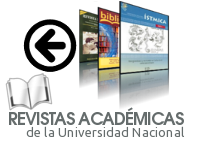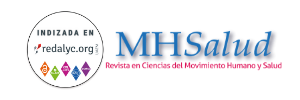Obstacle courses… nature, recreation, and health abstract
DOI:
https://doi.org/10.15359/mhs.4-1.5Keywords:
obstacle course, physical activity, team work, recreationAbstract
Obstacle courses are an activity that brings a group of people together, in which teams are organized to navigate an established route during a set period of time, completing tasks (clues, riddles, or challenges) to meet a defined goal. Rules and safety norms are explained to all participants; however, they are not informed of the location of the clues, riddles, or challenges. The following should be considered when organizing an obstacle course: objective, topic to be developed, location, materials needed, clues, riddles or challenges that may be included, and how to supervise that all teams pass the checkpoints. Like any other activity with a touch of competitiveness, fair play and respect should be above any interest. If, for any reason, any of the teams has an emergency, solidarity should prevail, and the activity can be used to teach values. An adventurous spirit is also essential in this activity. The desire for the unknown and the new challenges individuals and groups. This activity helps groups of friends, children, adults, families, etc. share a nice and healthy day together in contact with nature, rescuing concepts such as cooperation, cleverness and, particularly, team work.References
Corella, R. (2005, 30 de octubre). Sustos en la propia casa [PROA]. La Nación Costa Rica.
Brito, L. (1998). Juegos y prácticas para alcanzar un desarrollo físico óptimo. México: EDAMEX.
Kraus, R., & Curtis, J. (2000). Creative Management in Recreation, Parks and Leisure Services. Estados Unidos: McGraw-Hill.
Llorens, M. J. (1995). El juego de las preguntas y las respuestas. España: COFAS, S.A.
Ministerio de Educación y Ciencia. (1996). Deporte de orientación. España: Consejo Nacional de Deportes.
Parolini, M. (2003). Mil formas de organizar una búsqueda del tesoro. Bogotá, Colombia: Piemme.
Pinos, M. (1997a). Actividades físico deportivas en la naturaleza para niños y jóvenes. España: GYMNOS.
Pinos, M. (1997b). Guía práctica de la iniciación de los deportes en la Naturaleza. España: GYMNOS.
Rusell, R. (1982). Planning Programs in Recreation. London: C.V. Mosby Company.
Downloads
Published
How to Cite
Issue
Section
License
General conditions
MHSalud: Journal in Human Movement Sciences and Health by the Universidad Nacional is cover under a Creative Commons Atribución-NoComercial-SinDerivadas 3.0 Costa Rica license.
The journal is hosted in open access repositories such as the Institutional Repository of the Universidad Nacional, the Kimuk Repository of Costa Rica and La Referencia.
The editorial source of the journal must be recognized. Use the doi identifier for this purpose.
Self-archiving policy: The journal allows the self-archiving of the articles in their peer-reviewed version, edited and approved by the Editorial Board of the Journal to be available in Open Access through the Internet. More information in the following link: https://v2.sherpa.ac.uk/id/publication/25815



















